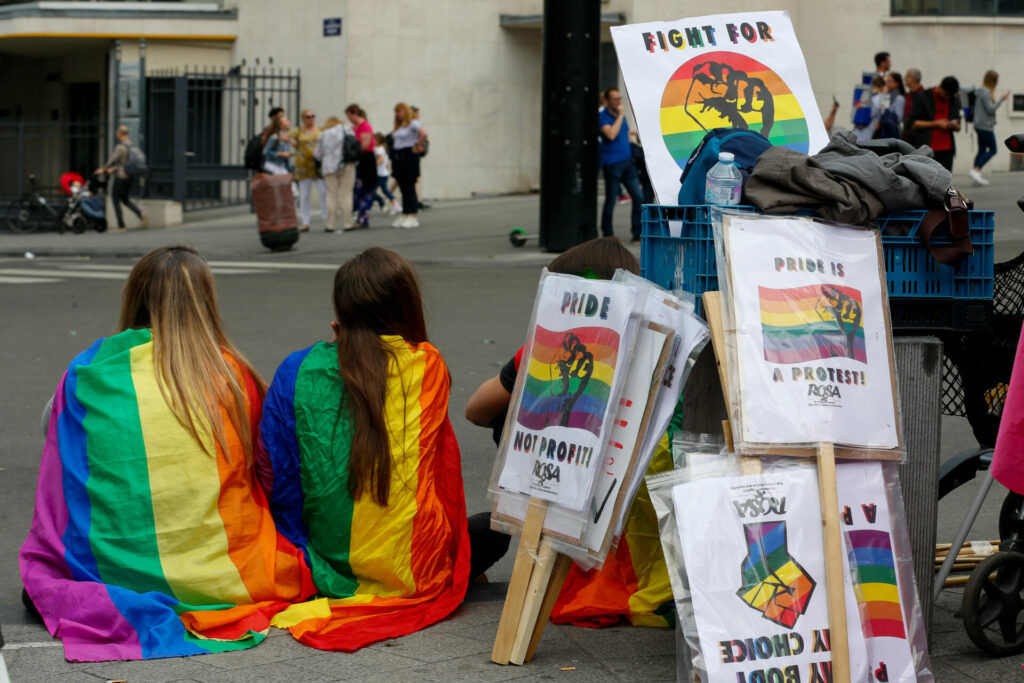Last year (2022) was the most violent year for LGBTQ people across Europe and Central Asia in the past decade, both through planned attacks and through suicides in the wake of rising and widespread hate speech from politicians, religious leaders, right-wing organisations and media pundits, a new report shows.
The 12th edition of the report by ILGA (International Lesbian, Gay, Bisexual, Trans and Intersex Association) found that attacks on LGBTQ people with a "conscious and deliberate will to kill and injure" have increased to unprecedented levels, as antipathy for the LGBTQ community has been driven and then exploited for political gain.
"We have been saying for years now that hate speech in all its forms translates into actual physical violence," said ILGA-Europe’s Executive Director, Evelyne Paradis, in a press release. "This year, we have seen that violence become increasingly planned and deadly, leaving LGBTQ people feeling unsafe in countries across Europe."
Paradis emphasised that the world has seen proof that anti-LGBTQ hate speech is "not just the words of marginal leaders or would-be autocrats," but a real problem with dire consequences for people and communities. Importantly, this phenomenon is not only observed in countries where hate speech is rife, "but also in countries where it is widely believed that LGBTQ people are progressively accepted."
Using hatred for political gain
The report finds that despite rising hate crimes, there is an improvement in how national and local courts are reacting, with prosecutions are on the rise in several countries. But reacting is not enough, according to Paradis.
"While we are getting better at dealing with outcomes, the focus has to be on stopping hate speech in all its forms," she stressed. "Across Europe, many politicians have reacted with horror to the killings of LGBTQ people this year, and while clear expressions of solidarity are always needed, it does not address the foundation of the problem, which is the proliferation of using hatred against LGBTQ people for political gain."
Leaders need to find ways to proactively fight the rise of hate speech, Paradis said, rather than finding themselves in the position of reacting to its consequences.
Importantly, it is not all bad news; the report also shows much progress reported in several countries, with the Review consistently finding that activists and their communities are the ones driving positive social change and managing to push legal protection forward, despite organised opposition.
"LGBTQ activists are the central players in countries where progress has been made, as we have seen in Spain and Finland, where huge effort went into successfully keeping self-determined legal gender recognition on the right political track, despite fierce opposition," said ILGA-Europe's Advocacy Director, Katrin Hugendubel.
Related News
- Belgium to support EU decision to take Hungary to court over anti-LGBTQ law
- Hate offences against LGBTQIA+ community are underreported, legislator says
- Belgium celebrates 20 years of same-sex marriage
This is true for every issue that affects LGBTQ communities across the region, showing that LGBTQ people and organisations remain empowered and continue to make change happen, she stressed. All ILGA's annual review reports can be found on the association's website, making it possible to chart the phenomenon of rising anti-LGBTQ hate speech in Europe and Central Asia, and its consequences.
"These successive reports tell a story of cause and effect that is not going to go away or diminish until politicians and policymakers understand that they have to get ahead of the problem," Paradis said. "In the current climate, progressive leaders must find effective ways to tackle hate speech in all its forms, instead of finding themselves on the back foot, expressing sympathy for the families of the needlessly murdered, or those who have taken their own lives, while hatred continues to be fostered and exploited."

